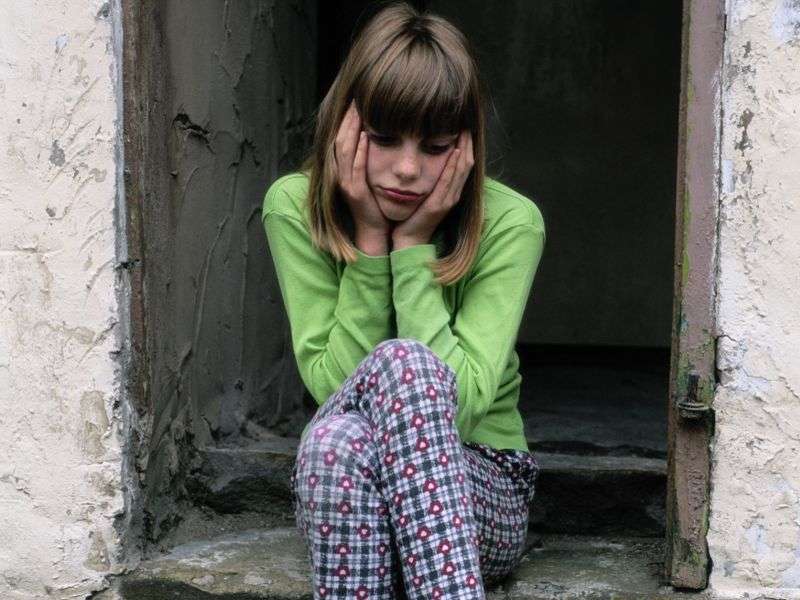New approach helps ease teens' stubborn concussion symptoms

(HealthDay)—For teenagers with lingering symptoms after a concussion, treatment that focuses on the "whole person" may speed their recovery, a new, small study suggests.
The researchers tested the effects of so-called "collaborative care" for teens with persistent problems following a concussion.
That meant they saw a team of health professionals who provided, among other things, "talk therapy" for their depression and anxiety.
After six months, those kids showed a speedier recovery than teenagers who'd received more typical care.
"Typical" can vary, because there are no guidelines on how to treat lingering concussion symptoms, explained study author Carolyn McCarty, a researcher at Seattle Children's Hospital.
But traditionally, she said, doctors have largely used the "watchful waiting" approach, where they monitor kids' progress as the brain injury heals.
She said the findings show the value of actively treating the fallout of a concussion, including mental and emotional symptoms.
Kenneth Podell, a neuropsychologist and director of the Houston Methodist Concussion Center, agreed.
"Concussions are treatable, and this study demonstrates that active treatment will help you get better quicker," said Podell, who was not involved in the research.
The issue of sports-related concussion—especially in young athletes—has garnered growing attention in recent years, McCarty pointed out.
According to the U.S. Centers for Disease Control and Prevention, more than 248,000 U.S. children and teens land in the emergency room each year because of a concussion sustained in sports or recreational activities. But that figure only captures kids taken to the ER.
A recent study estimated that the actual number of injuries is closer to 2 million a year, but researchers said even that figure is probably too low.
The more immediate symptoms of a concussion can include confusion, headache, dizziness, sluggishness and nausea or vomiting. With rest, most kids see their symptoms go away in a couple of weeks, McCarty said.
But some develop what's called post-concussive syndrome—where symptoms like headache, dizziness and sleep problems last a month or more. Depression or anxiety symptoms may set in, too.
Those psychological problems may be related to the brain injury itself, and to kids' emotional reactions to the concussion, Podell said.
"These kids are in a unique time of psychological and social development," he said. "Concussion symptoms may be keeping them out of school, or out of their sport, or away from their usual social circles."
According to Podell, it's important to address those issues early on. "We want to make sure kids aren't blowing things out of proportion in their minds, or misunderstanding what's happening to them," he said. "We need to treat the whole person, and not just the brain injury."
For the study, McCarty's team recruited 49 teenagers who'd suffered a concussion related to sports or recreation, and had persistent symptoms for at least a month. They randomly assigned each teen to either a "collaborative care" approach or typical care—which included referrals to a rehabilitative medicine specialist and, in some cases, exercise therapy or medication for sleep problems.
Kids given collaborative care went through cognitive behavioral therapy, where they learned relaxation techniques and other tactics to ease depression, anxiety and sleep problems.
They also had a care manager, who made sure their primary care doctor, psychiatrist and school were on the same page.
After a concussion, kids need to gradually return to mental work, McCarty explained. So it's important to communicate with schools about the recovery process, she said.
Six months into the study, only 13 percent of kids in the collaborative care group said they still had "high levels" of post-concussive symptoms. That compared with 42 percent of teens who'd received standard care.
More than three-quarters also had at least a 50 percent drop in depression symptoms versus 46 percent of kids in the standard-care group.
The results were published online Sept. 13 in Pediatrics.
So should all kids with persistent concussion symptoms receive "whole person" care? According to Podell, there could be practical barriers—such as a lack of mental health professionals in a child's community, or problems with insurance coverage.
But the bottom line, he said, is for parents and doctors to pay attention to the whole range of symptoms that can affect kids after a concussion. "Look at the whole person, and pay attention to their mental and emotional reactions to the injury, too," he said.
More information: The U.S. Centers for Disease Control and prevention has resources for parents on kids' concussions.
Copyright © 2016 HealthDay. All rights reserved.

















